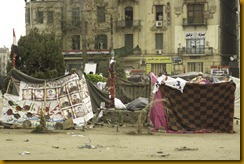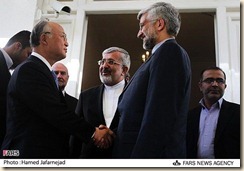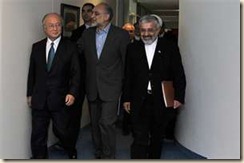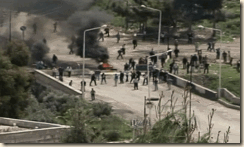Two years ago Tunisia, Egypt and Libya led the way for the so called “Arab Spring” by successfully ousting long entrenched authoritarian regimes. Tunisia accomplished this with a relatively peaceful series of demonstrations that forced President Ali to leave. Egypt’s overthrow of President Mubarak was more violent, but still relatively peaceful. Libya on the other hand endured months of civil war in order to force Muammar Gaddafi from power. I thought at the time that Libya would have the most difficult time in transitioning to a democratic system. Gaddafi had destroyed all of Libya’s civil society institutions and the country had a history of, sometimes violent, tribal rivalries. Despite these problems, Libya has managed a relatively successful transition and the IMF predicts that the economy will grow at a rate of 116% in 2012.
On the other hand, Egypt, the so called “leader of the Arab world”, has allowed its political issues to deteriorate into one big street brawl with opposing political groups shooting at each other. In order to understand how we got into this state of affairs, it is useful to examine the history of the Egyptian electoral process and how the results were read differently by the various parties.
The process began when the Supreme Council of the Armed Forces (SCAF) assumed power following Mubarak’s ouster. SCAF decided to hold elections before drafting a new constitution. The rapid timetable for Parliamentary elections favored the more organized Islamist parties. Following a convoluted series of elections and an even more obscure system of allocating seats, the Islamist parties emerged with 65% of the votes and 70% of the seats. Unsurprisingly, the Constituent Assembly, tasked by Parliament with writing the Constitution, was dominated by Islamists.
The Presidential elections were held in two stages. In the first stage, which determined who would move to the second round, the Muslim Brotherhood (MB) candidate Mohammed Morsi (25%) edged out Ahmed Shafiq, a remnant (falool) of the Mubarak regime (23%). The remaining moderate and secular parties could not agree on a common candidate and split the vote resulting in Morsi and Shafiq facing off in the second round. In this round Morsi won a narrow victory (52% to 48%) with many voters voting against the MB rather than for Shafiq. All this said, however, it should be pointed out that, however convoluted the process, Mohammed Morsi is the most democratically elected president in Egypt’s history.
The MB looked at the parliamentary results and concluded that they had an overwhelming mandate to govern. This conclusion has led to governing overreach. The opposition looked at the presidential results and concluded that a majority of Egyptians oppose the MB. The secularist and falool parties, who couldn’t agree on anything during the elections, have formed an odd coalition, The National Salvation Front (NSF). They have called the “regime” illegitimate, called for its overthrow and vowed that they “will not allow the constitutional referendum to go forward”. The tanks are back in the streets again. As Jason Brownlee points out in a recent article, by banking on military intervention and “courting a coup against Morsi or prolonging Egypt’s transition (the NSF) risks erasing the great strides made toward popular sovereignty and civilian control over the state.” Reza Aslan’s pithy Tweet sums it up, “For God's sake Egypt. The world is watching. Throwing rocks at each other is not politics. Get your shit together!”





